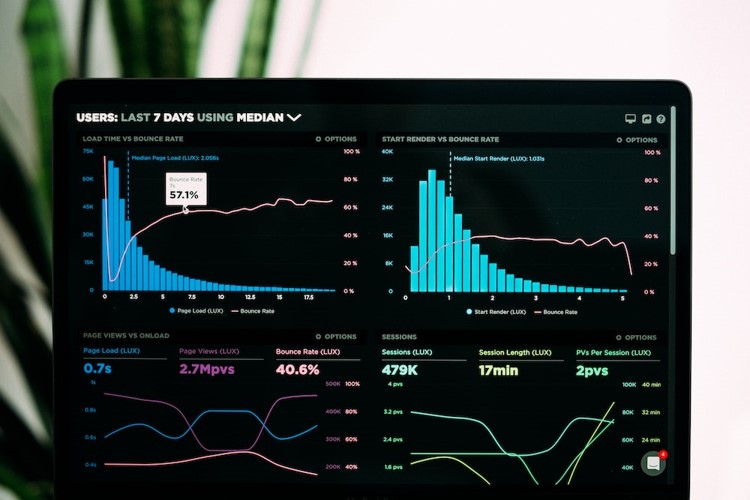What Is the Importance of Studying Macroeconomics?
As we navigate the challenges presented by the global economy in 2023, understanding macroeconomics has never been more essential. Given the rise of digital currencies, trade war dynamics, and inflation concerns looming large on our horizon, a comprehensive knowledge of macroeconomic principles is indispensable for anyone involved in trading forex or cryptocurrency markets.
Macroeconomics and Forex Trading Share Common Ground
Macroeconomics provides those involved in forex trading with the analytical tools to understand currency movements. Exchange rates don't change on a whim; their movements are determined by factors like interest rates, inflation rates, and geopolitical stability — elements deeply embedded within macroeconomic theory that impact exchange rate fluctuations. By mastering these concepts, forex traders can make more informed decisions to optimize their strategies for the greatest profit potential.
Macroeconomics Can Play an Essential Role in Policy Formation
Macroeconomics is not simply theoretical; it has great practical applications. Governments and policymakers rely heavily on macroeconomic models when crafting policies affecting millions of lives — whether interest rates or creating job programs — all guided by principles derived from macroeconomics. There are many ways trading forex can benefit immensely by understanding potential policy shifts that might influence them, especially markets sensitive to government action, such as bonds and equities that fluctuate wildly when policy decisions change rapidly.
 (https://unsplash.com/photos/5fNmWej4tAA)
(https://unsplash.com/photos/5fNmWej4tAA)Impact of Fiscal and Monetary Policies on Investment Activity
Fiscal and monetary policies directly affect the investment climate. A change in tax policy, for instance, can dramatically alter corporate profits — leading to potential stock price changes as a result — while quantitative easing (QE) policies can influence asset prices across the board.
Globalization and Its Economic Ramifications
Macroeconomics helps traders and investors understand global interdependencies – for instance, Brexit's impact on the European economy or U.S.-China relations impacting trade between them – so is an indispensable tool in trading or investment strategies.
Macroeconomics and Market Sentiment: Compatibilist Reaction
A positive jobs report in the U.S. could increase investor optimism and spur bullish trends across asset classes, while political unrest might cause investors to seek refuge in safe-haven assets like gold or government bonds as haven investments.
Exchange Rates in Global Trade
Knowing these indicators helps traders in FX markets predict pair movements more accurately; businesses that deal with international clients or suppliers can further mitigate risks by understanding which macroeconomic factors affect exchange rates.
Understanding Supply and Demand Dynamics in Commodity Markets
Commodity markets are highly susceptible to macroeconomic variables. Taking a macroeconomic perspective provides invaluable insight, from oil prices being affected by geopolitical tensions to agricultural products responding to weather patterns, taking a macroeconomic perspective provides invaluable insight.
 (https://unsplash.com/photos/JKUTrJ4vK00)
(https://unsplash.com/photos/JKUTrJ4vK00)Environment Economics Are Gaining Importance
As the world struggles to adapt to climate change, environmental economics is increasingly popular. Policies aiming at reducing carbon emissions or encouraging renewable energy production can have significant economic ramifications; traders in green bonds, renewable energy stocks, or carbon credits can leverage macroeconomic data for more informed decision-making.
Demographic Trends Influencing Economic Progress in U.S.
One often overlooked aspect of macroeconomics is demographics' influence in shaping economic trends. Growth rates, age distribution, and migration patterns all play a pivotal role. Population shifts such as an aging population could potentially increase healthcare expenditure and stock values in this sector — traders who keep an eye on demographic shifts can anticipate long-term trends with greater accuracy, offering them more strategic investment options.
Interplay Between Politics and Economics
Political decisions often have economic repercussions and vice versa. Trade tariffs, sanctions, or regulatory changes enacted by political actors have an enormous effect on market conditions; understanding their macroeconomic ramifications gives traders a fuller picture of risks and opportunities available within each market. For instance, a change of administration could bring changes to fiscal policies, which affect sectors like energy, healthcare, and technology in different ways.
Behavioral Economics and Market Psychology
Although traditional macroeconomics focuses on rational decision-making and market efficiency, behavioral economics is an emerging field investigating psychological influences on economic decisions. Market anomalies, herd behavior, and investor sentiment may often be better explained when approached through this lens — this makes traders better equipped to interpret market movements that appear irrational but are driven by collective psychology.
Central Banks Play a Role in Shaping Economic Policy
Central banks wield enormous influence over economic conditions. Their decisions regarding interest rates, money supply, and regulation can radically shift markets instantly. Understanding central banks' motives and potential actions – whether surprise rate hikes or policy statements that bring significant market volatility – is critical for traders involved with currency and bond trading markets. Currency and bond traders, in particular, must remain fully prepared in case one surprises or changes them with swift reactions, resulting in huge market swings with risk but opportunity in equal measures for traders who plan.
Macroeconomics and Asset Allocation
Economic cycles, inflation rates, and global economic conditions can impact various asset classes' performances; by understanding this elemental information, traders can optimize their asset allocation to increase returns while decreasing risks.
Future of Macroeconomics in an Intimated Digital World
As we progress further into the digital era, macroeconomics is evolving as well. New economic models created by digital currencies, online marketplaces, and smart contracts require new macroeconomic theories for successful trading; those keeping pace will have better prospects of successfully navigating future digital economic environments.
 (https://unsplash.com/photos/qfrtUw4NBPQ)
(https://unsplash.com/photos/qfrtUw4NBPQ)Moving into 2023, traders who will excel will be those who invest in assets while learning macroeconomics extensively. It is not solely an academic pursuit; it is essential for succeeding in today's complex global economy.
839GYLCCC1992



Leave a Reply